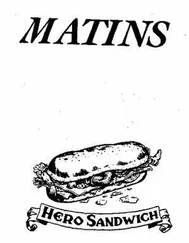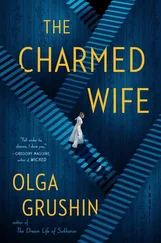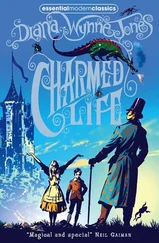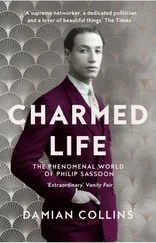
Sarala and Abhijat had always attended Meena’s parent-teacher nights together, Abhijat asking most of the questions about Meena’s performance and making notes on the small pad of paper he kept in the breast pocket of his jacket. This year, however, he’d been scheduled to present at a conference, so Sarala had promised to take detailed notes and report back on all pertinent information when Abhijat returned.
She dropped Meena off in the school’s library, where Meena made a beeline for the low shelf of books near the librarian’s desk, and Sarala made her way down the wide hall toward Meena’s classroom: Mrs. Hamilton, Grade 3, Room 125. The halls were filled with harried parents. “You meet with Jenny’s teacher. I’ll meet with Randy’s,” one woman, a baby on her hip, shouted down the hall to her husband, and Sarala thought of how here, again, was evidence that Abhijat had been right: that with one child, they need not spread their attentions, their resources, so thin.
Inside, Sarala took in the bright primary colors of the posters decorating nearly every inch of wall space. She thought of the schoolhouse at Heritage Village, with its spare walls and stern signs. She took her seat at the small desk labeled with Meena’s name on a piece of construction paper in careful cursive. A teacher’s handwriting, Sarala thought, smiling at the other parents sitting uncomfortably in the too-small chairs.
Mrs. Hamilton began by asking each of the parents to introduce themselves, and Sarala listened intently as they did so, trying to imagine something about their children, in whose company Meena spent her days.
Once the introductions were finished, the woman next to her leaned toward Sarala, extending her hand. “We should have met long ago. I’m Rose Winchester, Lily’s mother.”
“Oh, yes,” Sarala said, taking her hand. “I’m very pleased to meet you. Meena talks about Lily, well, nearly all the time.”
“It’s the same at our house,” Rose said, smiling.
There was something so perfect about Rose, in her twinset and pumps, glasses on a chain around her neck, Sarala thought, looking at her, though she wasn’t so much attractive as orderly looking, Sarala decided.
At the front of the classroom, Mrs. Hamilton began her part of the evening’s presentation — a description of the students’ daily schedules, an introduction to the textbooks for the year — and as she began, both Sarala and Rose pulled notebooks and pens from their purses. They were the only two parents taking notes, Sarala observed.
“For my husband,” Rose explained, gesturing at the notepad spread open on her daughter’s desk.
At conferences, Rose always took notes to share with Randolph in her next letter, and, in the weeks following the conference, she hand-delivered a letter from Randolph to Lily’s teacher, by way of illustrating that while theirs was an unconventional family arrangement, Randolph was by no means an absentee parent.
“For my husband, too,” Sarala said, holding up her pen. The women exchanged warm smiles, sharing this small thing between them. Sarala wondered if perhaps Lily’s father had a job as demanding as Abhijat’s.

Despite their many differences, both the Mital and the Winchester homes shared one thing in common — a long bookshelf filled with a maroon set of World Book Encyclopedias. It had been Lily’s idea that the girls should, together, embark upon a scheme of self-improvement whereby they would both read, each night before bed, a pre-selected entry in the World Book.
They moved through the set alphabetically, taking turns selecting the day’s reading, and at 7:30 each night, the phone in one house or the other could be heard ringing as the girls telephoned each other to announce the evening’s selection, at lunch the next day, their common reading providing them with a subject for conversation: ENLIGHTENMENT PHILOSOPHERSover peanut butter and jelly, MASTERS OF GERMAN LITERATUREover Fruit Roll-Ups, THE HALLMARKS OF FEUDAL SOCIETYover string cheese.
KINDS OF BRIDGES
At night, by light of campfire or oil lamp, Randolph wrote letters to Rose and Lily, which they took turns reading aloud at dinner on the happy days when the letters arrived bearing strange foreign stamps, his thick cream-colored writing paper marked with the signs of his travel — dirt, sweat, rainwater-smudged ink, exotic smells rising up from the paper as they unfolded it. In his letters, Randolph took them through the day’s adventures, and it was like being there with him. Almost.
When Lily missed her father, she retreated to his study, where his collection of National Geographics dating back to the 1930s weighed down a series of floor-to-ceiling bookshelves, their bright yellow spines a kind of wallpaper. Here, Lily curled up in the leather armchair, flipping through back issues of Popular Explorer , imagining her father hiking, setting up camp for the night, or traveling among a passel of goat herders, conjuring him into the pictures in his articles.
In Portugal, Randolph had learned from the local women how to balance a basket the size of a small table, filled with chickens, on his head for carrying to market. Home for Christmas, he’d tried to teach Lily, and she’d practiced diligently, walking gingerly to the bus stop at the corner, her backpack balanced precariously on her head.
“What are you doing?” Meena asked as Lily made her way down the narrow aisle of the bus slowly, eyes looking up, willing the backpack to stay put.
“Get a move on!” the bus driver shouted at her.
A HISTORY OF MAGIC DURING THE MIDDLE AGES
The first time Lily was invited over to Meena’s house, she’d been beside herself with excitement at the idea that she would be having dinner with an actual, real, flesh-and-blood physicist. She came home with Meena on the bus, Meena calling out, “Mom, we’re home!” as they opened the door, dropping her coat and backpack in the foyer next to a pile of slippers.
Lily removed her shoes, lined them up along the wall next to the slippers, and folded her coat in half, placing it carefully on top of her shoes.
Sarala had made them an after-school snack of lime Jell-O with rainbow-colored marshmallows floating, suspended, in its strange not-quite-liquid, not-quite-solid state. This she served proudly, though the girls were less enthusiastic, poking at it disinterestedly with their spoons.
They worked together on their homework, sitting side by side at the desk in Meena’s room until Sarala called them down to dinner. There, Abhijat stood at the head of the table and waited for the girls to take their seats before being seated himself.
“We are delighted to meet the celebrated Miss Winchester,” Abhijat said, holding his glass aloft in a toast. “Meena has told us a great deal about you.”
Lily blushed and felt as though she were dining with President Reagan himself.
Throughout the meal, she peppered Abhijat with questions about his work, his research, his daily routine at the Lab, and the difference between an experimental and a theoretical physicist. Abhijat was delighted by her animated curiosity. (This was one of the few traits she shared with her mother, favoring Randolph in appearance and temperament.) She was a perfect companion for Meena, Abhijat thought.
For Meena, it was — as this moment is for nearly all children who find themselves seeing a parent through the eyes of another — startling. Watching her father grow spirited and enthusiastic as he talked about his work, she felt as though she, too, had met someone new that night.
Читать дальше













